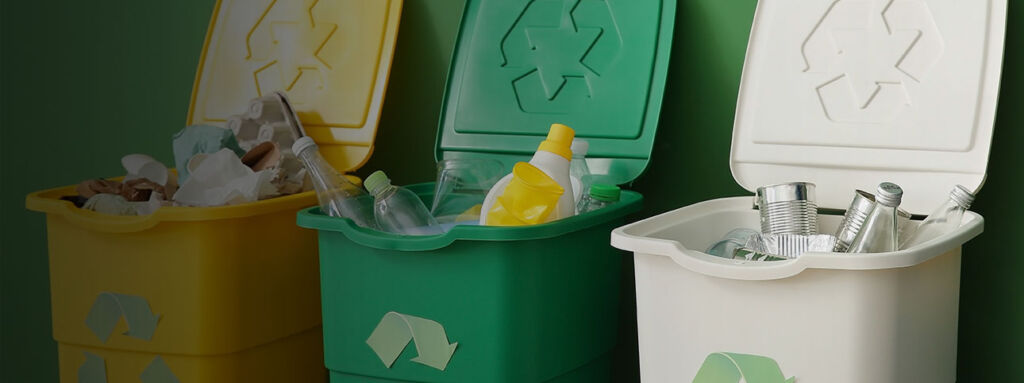February 4, 2020
Recycling 101: How to Recycle Common Materials Safely and Efficiently
Sustainability is a hot topic in today's world. As many brands are moving toward creating more sustainable products and packaging, consumers are becoming more aware of their individual impact on the environment.

Well-known brands like Starbucks, Nestle and the Milwaukee Brewers with SC Johnson are making moves to escalate their recycling efforts and reduce their carbon footprints.
Likewise, today’s consumers are paying more attention to the materials they’re tossing in the garbage versus placing in a recycling bin. While most consumers may know that recycling is an important first step to reducing waste taken to landfills and in conserving resources, not as many are aware of the differences in recyclable materials. Many more may be surprised to learn that there are some materials we think may be recyclable that are actually better off being thrown in the trash or being taken to a specialized facility.
Here some useful tips on how to properly recycle a variety of common materials.
Paper
Paper is the most commonly recycled material on the planet, mainly because almost every paper item is recyclable. Recycled paper is used to make secondhand products, which saves trees and other natural resources. One exception is retail receipts, which are coated with the chemical bisphenol A (BPA) and are therefore not recyclable or compostable.
Cardboard
Trends such as the rise of online shopping and food and grocery delivery have increased the amount of cardboard consumed by households. Recyclable cardboard items include corrugated boxes, gift boxes, non-laminated file folders, poster board, frozen food boxes and clean milk cartons. (It’s best to toss greasy pizza boxes in the trash after use, as food debris greatly hinders the process.)
Metal
Aluminum, tin and steel food and beverage cans, as well as aluminum foil, typically are 100% recyclable. Scrap metal should be taken to a local transfer station for proper handling.
Plastics
Almost every plastic container has a Plastic Identification Code on its packaging, symbolized by a triangle with an inset number ranging from 1 to 7. Most local recycling services accept plastic types 1 or 2, which include beverage bottles and plastic containers used for milk, juice, cleaning products and cosmetics. Plastics are among the most complicated items to recycle, but because most plastics can take centuries to break down in landfills, the extra effort required to sort plastic recyclables can go a long way in having a positive impact on the environment.
Glass
Glass is one of the simplest materials to recycle. Most glass can be recycled over and over again; just rinse or wash out glass containers and recycle. Some glass items, such as light bulbs, may not be accepted by local recycling systems. To make sure, check with your local waste office to find out how to safely recycle these questionable items.
Wood
Wood recycling best practices vary by community. Scrap lumber and untreated wood can be chipped and used in compost or mulch. Wood that has been treated, painted or varnished is typically not a good candidate for recycling due to the chemicals used in the finishes.
Electronics
Think twice before tossing old batteries and devices in the trash or recycling bin. Electronic products are made from a variety of materials, including metals, plastics and glass. Donating or recycling consumer electronics conserves natural resources. Check with manufacturers and retailers, many of which offer several options to donate or recycle old or unused electronics.
—————-
According to a 2019 EcoFocus Trends Survey, more and more consumers – particularly millennials – are seeking education and information from manufacturers and retailers on how to properly recycle or dispose of product packaging, which includes clearer recycling directions on packaging. These small steps can make a big difference in improving the ways people consume and dispose of materials.
Having recycling containers available at your facility allows your business and customers to contribute to keeping the planet clean. Commercial Zone offers a variety of recycling containers that encourage proper recycling habits.
